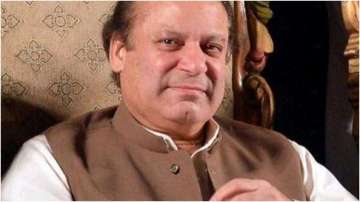Pakistan's security services favoured Imran Khan and covertly manipulated the country's domestic politics before and during the 2018 election with a central motive of removing Nawaz Sharif and his party PML-N from power, a US Congressional report said, citing analysts.
The report prepared for US lawmakers by the bipartisan Congressional Research Service (CRS) said Khan had no governance experience prior to winning his current office and analysts contend that a purported "military-judiciary nexus allegedly came to favour" his Pakistan Tehreek-e-Insaaf party.
"Many analysts contend that Pakistan's security services covertly manipulated the country's domestic politics before and during the election with a central motive of (again) removing Sharif from power and otherwise weakening his incumbent party," the report said.
"Election observers and human rights groups issued statements pointing to sometimes 'severe' abuses of democratic norms, and the unprecedented participation of small parties with links to banned Islamist terrorist groups were seen to embolden militants (Islamist parties won a combined 10 per cent of the national vote in 2018)," it said.
Khan's 'Naya Pakistan' vision - which appeared to animate many younger, urban, middle-class voters - emphasizes anti-corruption and creation of a "welfare state" that provides better education and health care, but his effort has foundered due to the country's acute financial crisis, and a need for new foreign borrowing and government austerity, the report said.
"Most analysts see Pakistan's military establishment continuing to retain dominant influence over foreign and security policies," it added. The powerful army, which has ruled Pakistan for more than half of its 70 plus years of existence, has hitherto wielded considerable power in the matters of security and foreign policy. But now, the military will play a greater role in the economic affairs of Pakistan as the government grapples with serious financial woes.
The CRS is an independent research wing of the US Congress, which prepares periodic reports on issues of interest for lawmakers. Its report are for meant for US lawmakers to make an informed decision and not considered as an official report of the US Congress.
China had asked for the "closed consultations" in the Security Council. India has categorically told the international community that the scrapping of Article 370 was its internal matter and also advised Pakistan to accept the reality.
The Inter-Services Public Relations - the media wing of the Pakistan Army - said during the meeting between Xu and Bajwa, matters of mutual interest, regional security, avenues to enhance bilateral defence collaboration and particularly the situation in Kashmir were discussed.
Reports from Pakistan also said the two countries signed an MoU to enhance defence cooperation and capacity building of the Pakistan Army. Ren, however, did not refer to the signing of the MoU. While Pakistan officials said, the talks covered the present situation in Kashmir, China's state-run Xinhua news agency in its coverage of Xu’s visit made no reference to the Kashmir issue.
Xu kicked off his Pakistan visit on Monday. During his stay in Islamabad, Xu also held meetings with Pakistan's Chairman of the Joint Chiefs of Staff Committee Zubair Mahmood Hayat, Chief of Naval Staff Zafar Mahmood Abbasi and Chief of Air Staff Mujahid Anwar Khan, the Xinhua said.
Latest World News
